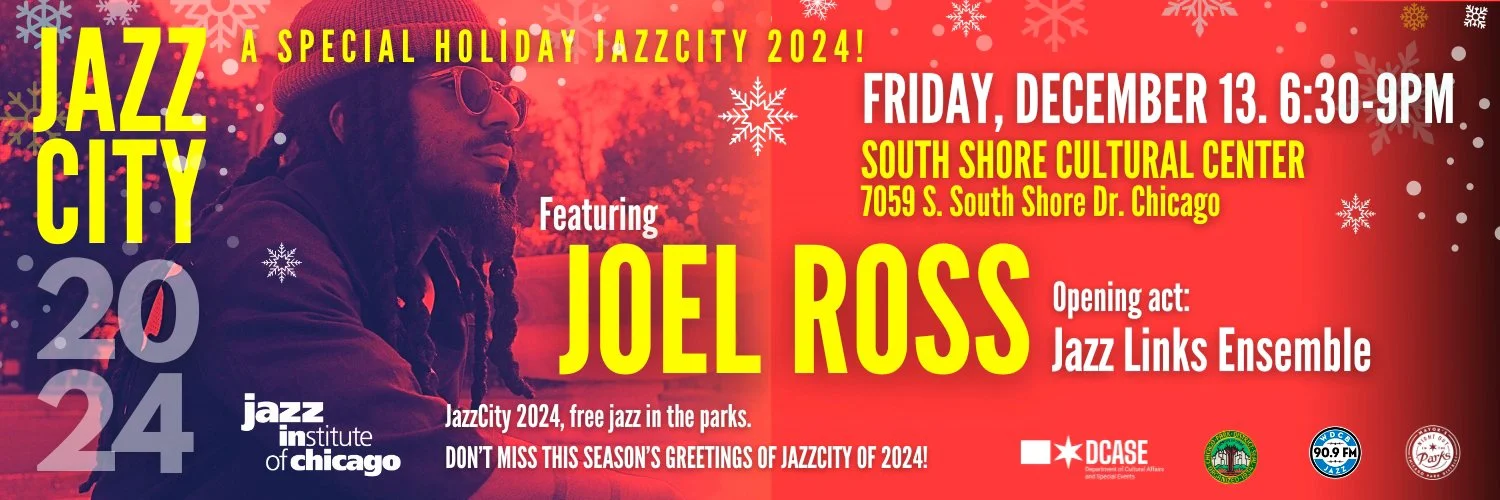Join us for a VERY SPECIAL HOLIDAY JAZZCITY WITH THE INCOMPARABLE JOEL ROSS at SOUTH SHORE CULTURAL CENTER.
South Shore Cultural Center, Friday, December 13 at 6:30PM. Free and family-friendly.
7059 S South Shore Dr, Chicago, IL 60649
6:30PM - Opening act: JAZZ LINKS ENSEMBLE
7:00PM - JOEL ROSS
ABOUT JOEL ROSS
Joel Ross has amassed a dedicated following by creating music you have to lean into. That doesn’t make it any less palatable, but across the vibraphonist’s recorded output — 2019’s KingMaker, 2020’s Who Are You?, and 2022’s The Parable of the Poet — the compositions were somewhat complex, and ushered the virtuosity of his band’s live performance to a studio setting. For nublues, his remarkable fourth release as a leader for Blue Note, Ross challenged himself to create an album with a greater degree of accessibility — still intricate and adventurous, but with a strong emphasis on melody, ballads, and the blues. On purpose, nublues feels familiar, like you’ve already heard these songs in Greenwich Village somewhere. Though there are covers on this LP (John Coltrane’s “equinox” and “central park west”; Thelonious Monk’s “evidence”), this collection of newly written material exemplifies the bandleader’s evolution.
ABOUT SOUTH SHORE CULTURAL CENTER!
The South Shore Cultural Center, a 70 acre plus park with a golf course, tennis courts, a bathing beach, and an impressive building, originated as the South Shore Country Club. In 1905, Lawrence Heyworth, president of the downtown Chicago Athletic Club, envisioned an exclusive club with a "country setting." Heyworth selected unimproved south lakefront property, often used for fishing and duck hunting, for the new country club.
The club's directors hired architects Marshall and Fox, later known for designing many of Chicago's most luxurious hotel and apartment buildings, including the Drake Hotel. For inspiration, Heyworth provided a photograph of an old private club in Mexico City, but asked the architects to exclude expensive embellishments. As the club could not yet collect dues, work had to proceed quickly and inexpensively. To this end, members Marshall Field and A. Montgomery Ward lent their store delivery wagons to transport turf, sod, and trees. Mr. Worcester, Vice-President of the Peoples Gas Company, put in lighting for the grounds and clubhouse.
Enjoying immediate success and social importance, South Shore Country Club quickly outgrew its facilities. Marshall and Fox were hired to build a new clubhouse, incorporating the original ballroom. Constructed in 1916, the larger and more substantial reinforced concrete building, like the original, was designed in the Mediterranean Revival style. The country club's membership peaked in the late 1950s. Simultaneously, many African-Americans began settling in South Shore. Because the private club excluded black members, it went out of business in the 1970s.
In 1974, the Chicago Park District purchased the property to expand its lakefront facilities. The Park District planned to demolish the severely-deteriorated clubhouse. However, community members rallied together to save the historic building. Rehabilitating the clubhouse as a cultural center in the late 1970s, the Park District has since restored other historic features including the front colonnade, entry gate and stables.
ABOUT JAZZCITY
JazzCity is free, family friend, open to the public, and presented by the Jazz Institute of Chicago in partnership with the Chicago Park District and is supported by a CityArts grant from the City of Chicago Department of Cultural Affairs and Special Events, The Illinois Arts Council Agency, a state agency, and the National Endowment for the Arts. Media sponsors is WDCB.
Jazz Institute of Chicago is proud to receive generous support from the following organizations:
The Allstate Foundation; The Alphawood Foundation; a CityArts grant from the City of Chicago Department of Cultural Affairs and Special Events; Crown Family Philanthropies; Chicago's Cultural Treasures; The Darling Family Foundation; The Field Foundation; The Gaylord and Dorothy Donnelly Foundation; The Lloyd A. Fry Foundation; The Glossberg Foundation; The Illinois Arts Council Agency, a state agency; The National Endowment for the Arts, The Polk Bros. Foundation; The Oppenheimer Family Foundation; The Walder Foundation; and The Wang Family.

